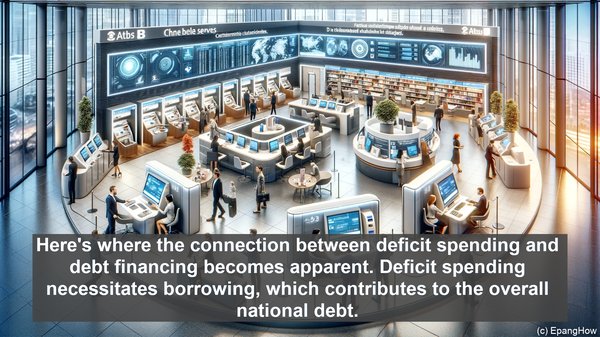Introduction: The Economic Landscape
Welcome to this insightful article on the intricacies of deficit spending and debt financing. In today’s world, where governments play a pivotal role in shaping economies, comprehending these concepts is crucial. So, let’s embark on this educational journey!
Deficit Spending: A Closer Look
Deficit spending refers to a situation where a government’s expenditures exceed its revenues in a given period. Essentially, it’s when the government spends more than it earns. This disparity often arises due to various factors, such as increased public investments, economic downturns, or the need to address critical issues like infrastructure development or social welfare.

Implications of Deficit Spending
While deficit spending can be a strategic move during challenging times, it’s not without consequences. One of the primary concerns is the accumulation of debt. When a government consistently spends beyond its means, it needs to borrow money to bridge the gap. This leads us to the concept of debt financing.
Debt Financing: Understanding the Mechanism
Debt financing, as the name suggests, involves obtaining funds through borrowing. Governments issue bonds, treasury bills, or other debt instruments to raise capital. These financial instruments are often purchased by individuals, institutions, or even other governments. In return, the government promises to repay the borrowed amount along with periodic interest.
The Relationship: Deficit Spending and Debt Financing
Here’s where the connection between deficit spending and debt financing becomes apparent. Deficit spending necessitates borrowing, which contributes to the overall national debt. In other words, deficit spending is one of the factors that lead to debt accumulation. However, it’s important to note that not all debt arises from deficit spending. Governments may also borrow for long-term investments or refinancing existing obligations.

The Impacts: Economic and Social
The consequences of deficit spending and debt financing extend beyond the financial realm. Economically, excessive debt can strain a nation’s resources, leading to higher interest payments, reduced credit ratings, and limited fiscal flexibility. Socially, it can impact future generations, as they may bear the burden of repaying the debt through increased taxes or reduced public services.
